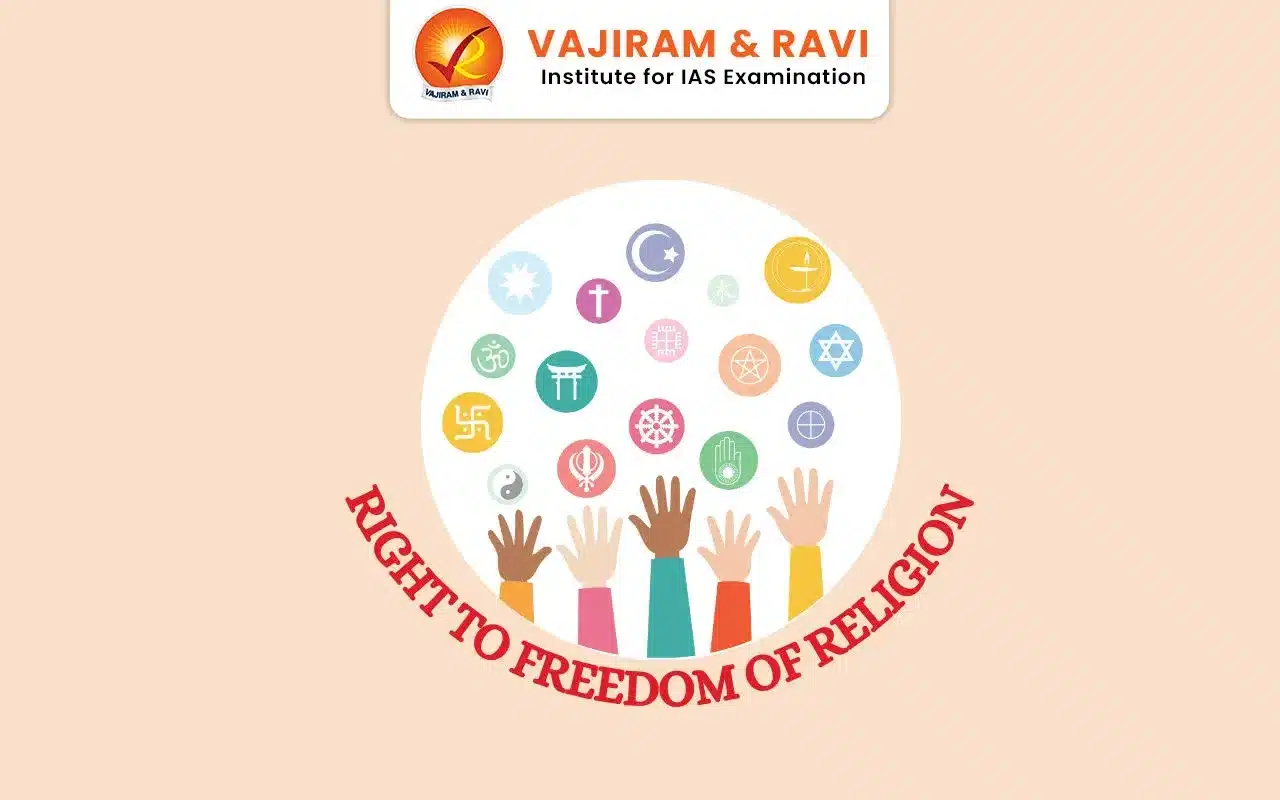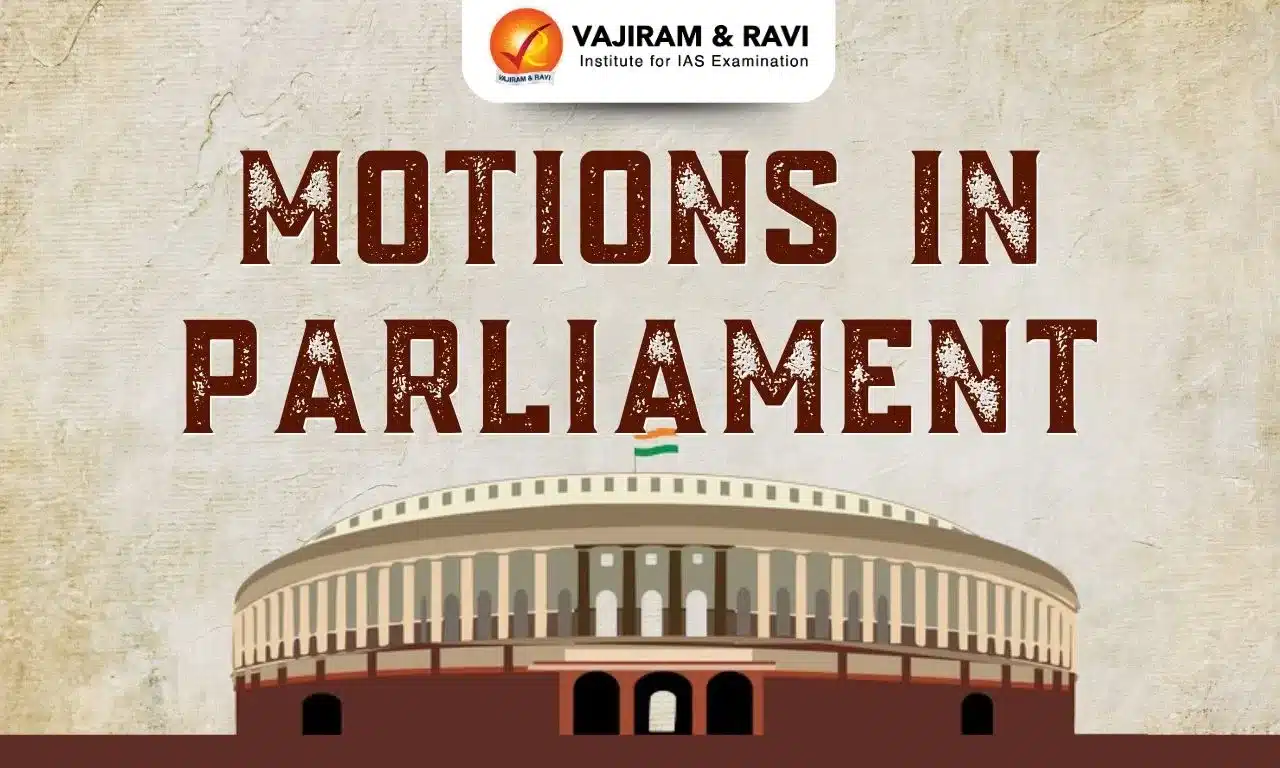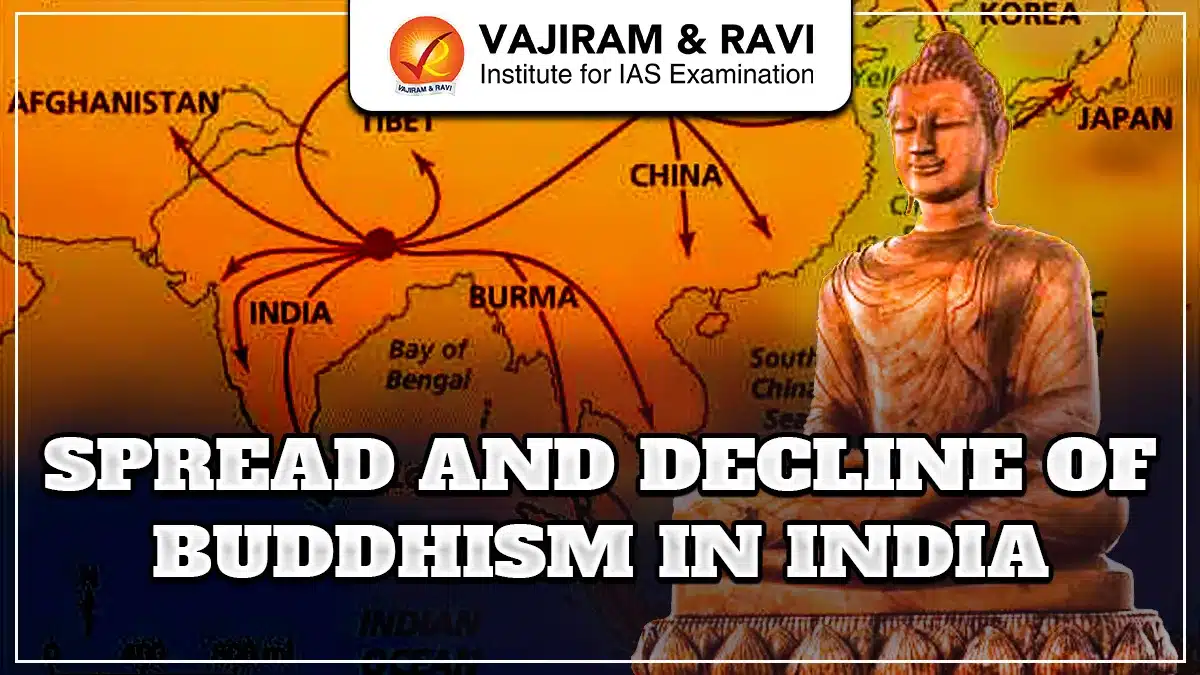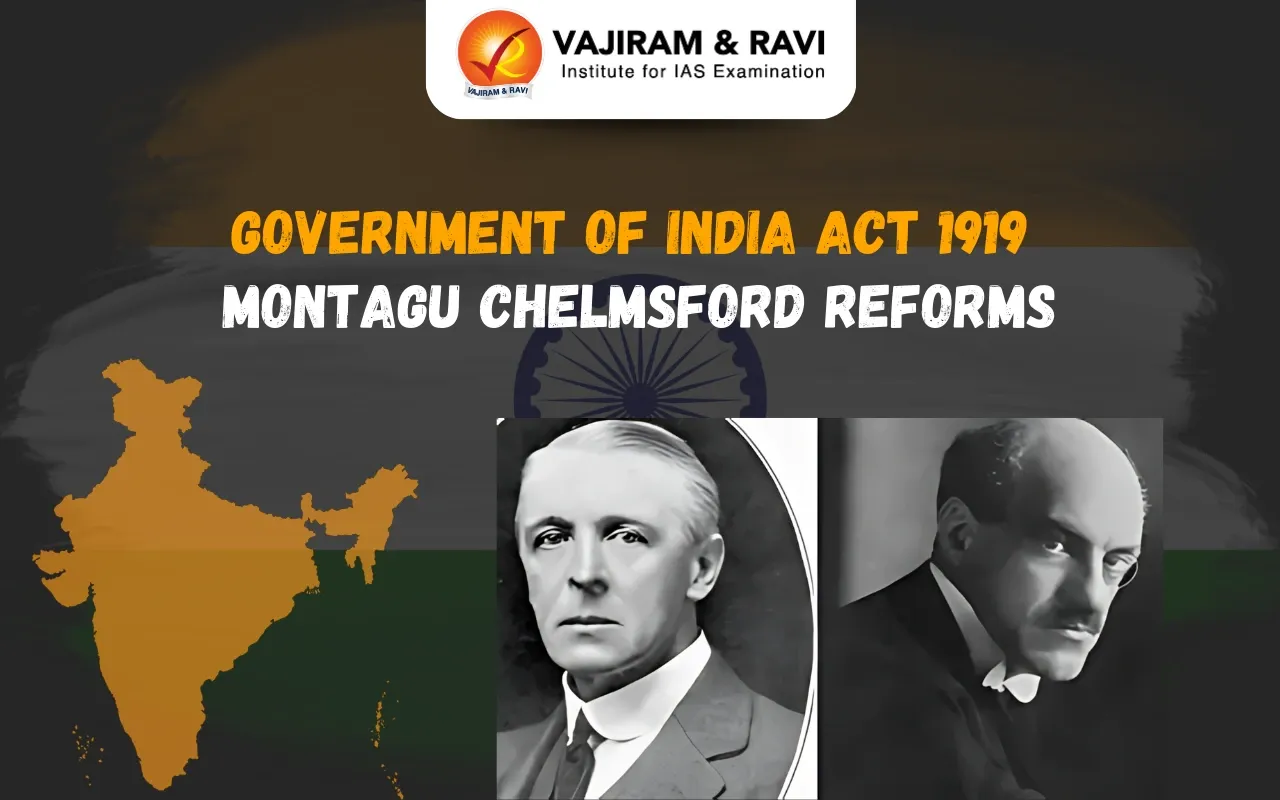The Right to Freedom of Religion is a fundamental right enshrined in many constitutions globally, including India's. It grants individuals the freedom to profess, practice, and propagate any religion of their choice. Internationally, it is guaranteed by Article 18 of the Universal Declaration of Human Rights and Article 18 of the International Covenant on Civil and Political Rights.
In India, the Right to Freedom of Religion is guaranteed under Articles 25-28 of the Constitution. It assures citizens the liberty to follow, profess, and promote any religion, subject to public order, morality, and health.
Constitutional Provisions for Right to Freedom of Religion
Articles 25 to Article 28 of the Indian constitution are the most important articles guaranteeing religious freedom. The Constitution of India thus envisages a secular model.
Article 25 - Freedom of Conscience and Free Profession, Practice and Propagation of Religion
- Rights: Article 25 of the Constitution guarantees that every person has an equal right to freedom of conscience and the freedom to profess, practise, and propagate religion.
- Availability: Rights under Article 25 are available to all individuals, both citizens and noncitizens.
- Article 25 also contains two explanations:
- The wearing and carrying of kirpans shall be considered part of the Sikh religious profession.
- The term "Hindus" shall be interpreted to include persons practising the Sikh, Jaina, or Buddhist religions.
- Limitations: These rights are, however, subject to public order, morality, health, and other fundamental rights provisions. Further, the state can make laws for:
- regulating or restricting any economic, financial, political, or other secular activity that may be associated with religious practice.
- providing for social welfare and reform or the throwing open of Hindu religious institutions of a public character to all classes and sections of Hindus.
Article 26 - Freedom to Manage Religious Affairs
- Rights: The Constitution confers rights on every religious denomination or any section of:
- Right to establish and maintain institutions for religious and charitable purposes;
- Right to manage its affairs in matters of religion;
- Right to own and acquire movable and immovable property; and
- Right to administer such property in accordance with law.
- Limitations: These rights are subjected to public order, morality, and health.
Article 27 - Freedom as to Payment of Taxes for Promotion of Any Particular Religion
- Article 27 prevents a person from being compelled to pay any taxes, the proceeds of which are expressly designated for the payment of expenses incurred in the promotion or maintenance of any particular religion or religious denomination.
Article 28 - Freedom as to Attendance at Religious Instruction or Religious Worship in Certain Educational Institutions
- No religious instruction shall be provided in any educational institution entirely maintained out of State funds.
- However, this provision shall not apply to an educational institution administered by the State but established under any endowment or trust, requiring the imparting of religious instruction in such institution.
- No person attending any state-recognised or state-aided educational institution is required to participate in any religious instruction or worship that may be conducted in such institution or its premises unless such person or his/her guardian if such person is a minor, has given the consent.
Supreme Court Judgments on Right to Freedom of Religion
Most of the cases related to religious freedom and practices are related to the doctrine of essentiality, starting from the Shri Shirur Mutt case in 1954.
- The Commissioner, Hindu Religious Endowments, Madras v Shri Lakshmindar Tirtha Swamiyar of Shri Shirur Mutt (1954): The Court held that:
- ‘religion’ would include those rituals that are integral to a particular religion.
- Article 25(2) gives the power to the state to make laws concerning the regulation of economic, political, and other activities related to religion.
- The responsibility of determining integral religious practices was left with the courts.
- The Court rejected the suggestion that only “essential” practices of religion be given constitutional protection.
- Mohd. Hanif Quareshi vs. the State of Bihar (1958): The Supreme Court ruled that cow sacrifice on Bakr-Eid was not an essential part of Islam and thus could be prohibited by the state under clause (2)(a) of Article 25.
- Durgah Committee, Ajmer v. Syed Hussain Ali (1961): The court held that religious practices that are essential to a religion are protected, not all practices.
- Acharya Jagdishwaranand Avadhuta vs. Commissioner of Police, Calcutta (1984): The Court ruled that Tandava dance in procession or public places by Ananda Margis carrying lethal weapons and human skulls is not an essential religious rite of Anand Marga followers and thus the order prohibiting such procession in the interest of 'public' order and morality is not a violation of Article 25 and 26 of the Constitution.
- Dr. M. Ismail Faruqui vs. Union of India (1994): The Supreme Court ruled that under Article 26 of the Constitution, mosques, temples, and churches are immovable properties that are not required for religious practice; thus, the state may acquire immovable properties.
- Bijoe Emmanuel v. State of Kerala or National Anthem Case (1987): The case centred on the expulsion of three students who abstained from singing the national anthem in a government school in Kerala due to religious beliefs.
- The Supreme Court asserted that the student’s right to Freedom of Conscience and Religion extended to both holding and expressing their beliefs.
- It ruled that their expulsion violated fundamental rights under Articles 19(1)(a) and 25, emphasising the significance of religious freedom as a Constitutional tenet.
- The judgement stressed the duty of public authorities, like schools, to safeguard these rights, affirming that forcing students to sing the national anthem despite religious objections violated constitutional freedoms.
- Shayara Bano v. Union of India (2017): It ruled that the practice of triple talaq was unconstitutional and illegal. The Court also stated that personal laws must pass the constitutional validity and gender justice tests.
- Sabarimala Temple Case (2018): The entry of women aged from 10 to 50 was restricted into the Sabarimala temple in Kerala, citing tradition and customs.
- The SC held the practice unconstitutional and upheld the right of women to equality of access to places of worship.
Right to Freedom of Religion Limitations
The right to freedom of religion is a cornerstone of Indian democracy. However, it is not absolute and can be subject to reasonable limitations in the interest of public order, morality, and health as well as constitutional values.
- Restrictions: The right to religious freedom is subject to restrictions in the interest of public order, morality, and health.
- Further, Article 25(2) allows the state to intervene in economic, financial, political, or other secular activities.
- The doctrine of essentiality: The essential religious practices doctrine governs which religious practices are protected under Articles 25 and 26 of the Constitution.
- While religious practices are protected, only essential religious practices receive constitutional protection.
- The jurisprudence of the essentiality of a religion lies with the Supreme Court.
- Conflict with other fundamental rights: Many times, the right to freedom of religion has been seen in opposition to the right to equality or the right to life.
- For example, the Sabarimala case of 2018 is a prime example of the right to maintain religious affairs versus the right to equality of women.
- State’s interference: There are still ongoing debates on the extent of the State’s intervention in religious practices and the potential misuse of religious freedom for discriminatory purposes.
- For example, the Right to Wear Hijab is a debatable topic that addresses the balancing act between religious expression and uniform policies in educational institutions.
- Balancing rights and public order: The Ram Janmabhoomi-Babri Masjid Dispute was a major issue that resulted in the disruption of public order.
- SC established a balance between religious sentiments and legal claims, awarding the disputed land in Ayodhya for the construction of a Ram temple while providing alternative land for a mosque.
Last updated on February, 2026
→ UPSC Notification 2026 is now out on the official website at upsconline.nic.in.
→ UPSC IFoS Notification 2026 is now out on the official website at upsconline.nic.in.
→ UPSC Calendar 2026 has been released.
→ Check out the latest UPSC Syllabus 2026 here.
→ Join Vajiram & Ravi’s Interview Guidance Programme for expert help to crack your final UPSC stage.
→ UPSC Mains Result 2025 is now out.
→ UPSC Prelims 2026 will be conducted on 24th May, 2026 & UPSC Mains 2026 will be conducted on 21st August 2026.
→ The UPSC Selection Process is of 3 stages-Prelims, Mains and Interview.
→ Prepare effectively with Vajiram & Ravi’s UPSC Prelims Test Series 2026 featuring full-length mock tests, detailed solutions, and performance analysis.
→ Enroll in Vajiram & Ravi’s UPSC Mains Test Series 2026 for structured answer writing practice, expert evaluation, and exam-oriented feedback.
→ Join Vajiram & Ravi’s Best UPSC Mentorship Program for personalized guidance, strategy planning, and one-to-one support from experienced mentors.
→ UPSC Result 2024 is released with latest UPSC Marksheet 2024. Check Now!
→ UPSC Toppers List 2024 is released now. Shakti Dubey is UPSC AIR 1 2024 Topper.
→ Also check Best UPSC Coaching in India
Right to Freedom of Religion FAQs
Q1. What exactly is the right to religion?+
Q2. What is the meaning of religious freedom in India?+
Q3. What are the restrictions on the Right to Freedom of Religion?+
Q4. What is the significance of the Right to Religious Freedom?+
Q5. Is the right to religious freedom a human right in India?+
















